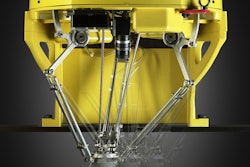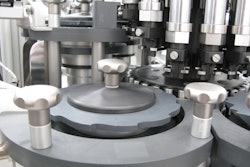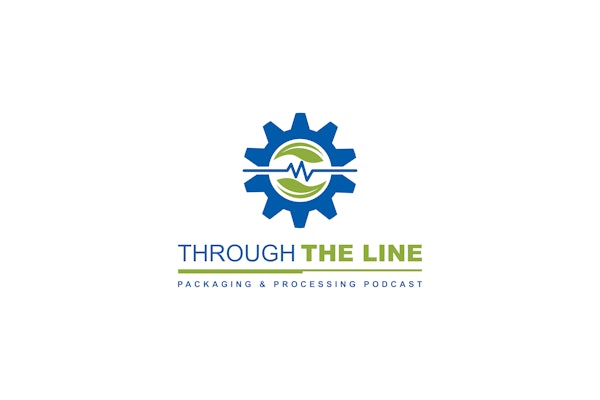The deal, which is expected to be completed in early 2013 after approval by Medicis' shareholders and regulatory clearance, would involve Valeant's acquisition of all Medicis' outstanding common stock at $44 each, a 39.4% premium to Medicis' closing share price of $31.60 per share on August 31. Valeant is a multinational specialty pharmaceutical company that develops and markets prescription and nonprescription pharmaceutical products. The company is focused on the dermatology and neurology therapeutic areas primarily in North America, Latin America, Southeast Asia, Central and Eastern Europe, Australia, and South Africa. Medicis is a leading specialty pharmaceutical company in the US with many popular products including Solodyn (minocycline), the only branded oral minocycline approved for once-daily dosage in treating inflammatory lesions of non-nodular moderate to severe acne vulgaris in patients 12 or older.
Valeant relies on inorganic growth through mergers and acquisitions as its management would rather spend on acquisitions than on research and development, which it regards as a risky use of shareholder cash. The Medicis deal brings Valeant's total cost of acquisitions so far in 2012 to about $3.5 billion, as the company has already made about 15 acquisitions in 2012, including the purchases of Natur Produkt, Probiotica Laboratórios, and OralPharma in Russia, Brazil, and the US respectively. Furthermore, the company has made about 50 acquisitions since 2008. GlobalData believes the company's acquisitions outside Canada, particularly in Europe and emerging markets such as Brazil, are targeted at increasing its global presence and establishing itself as one of the biggest players in the dermatology market. This is unsurprising bearing in mind the recent increase in biotech and pharmaceutical companies' interest in emerging markets such as India, Brazil, and Singapore as economies that could potentially boost revenues. In the second quarter of 2012, the EU and emerging markets made up 50.7% ($2.53 billion) of Valeant's $5.0 billion revenue - a 460 basis point increase from 46.1% ($2.4 billion) of its $5.1 billion revenue in Q1 2012. Although Medicis does not currently play in any geographic market new to Valeant, its products and clinical pipeline will further strengthen Valeant's growing arsenal in dermatology and potentially increase its revenues in subsequent years.
Valeant does not think a 39.4% premium is too much to pay for the acquisition of Medicis. According to the company, the acquisition is a strategic fit as Medicis' development pipeline and portfolio of branded products, such as Solodyn and Dysport (abobotulinumtoxinA), are complementary with Valeant's. In addition, the combined dermatology and aesthetic businesses are expected to generate over $1.7 billion in revenues in 2012. Furthermore, the acquisition is viewed as a step toward strengthening Valeant's presence in acne, actinic keratosis, aesthetic injectables and antivirals. These are valid and encouraging points. However, does Valeant's valuation of Medicis and the consequent agreement of a $2.6 billion deal hint at desperation? GlobalData believes the company, which has been seeking potential targets since 2011 when it lost out in a bid for Cephalon, is trying to avoid a recurrence by potentially overpaying for Medicis.
In March 2011, Valeant failed in its $5.7 billion bid to acquire Cephalon, a company that was later bought by Teva Pharmaceuticals for $6.8 billion in May 2011 after Valeant declared its refusal to enter into a bidding war. Cephalon was targeted due to the huge revenue potential of its clinical pipeline, which included developmental products in the treatment of cancer and asthma. In addition, the company was developing adult Mesenchymal Precursor Stem Cell (MPC) therapeutics for degenerative conditions of the cardiovascular and central nervous systems including Parkinson's disease, congestive heart failure, acute myocardial infarction, and Alzheimer's disease. Although Cephalon's pipeline can be regarded as having a high-risk, high-reward profile, its potential revenues cannot be over emphasized. Teva priced Cephalon's common stock at $81.50 each, 12% higher than Valeant's valuation of $72.80 per share. It is therefore interesting to discover that Valeant is purchasing Medicis at such a high premium despite dropping out of a bid for Cephalon which was acquired by Teva at only a 5.8% premium.
Paying a premium is a common phenomenon in acquisitions involving biotech and pharmaceutical companies as a result of various factors including goodwill, intellectual property rights, and promising clinical pipelines. The complexities of evaluating these factors make M&A deals involving drug makers a tricky and often unpredictable venture. Whatever Valeant's reasons are for the cost of the Medicis deal, analysts will undoubtedly keep the company on their radar and revisit the acquisition in subsequent months to evaluate its performance. Meanwhile, Valeant will be hoping that it has not overpaid and consequently wasted the very same shareholder funds that it seeks to protect by choosing acquisitions over R&D.
Valeant relies on inorganic growth through mergers and acquisitions as its management would rather spend on acquisitions than on research and development, which it regards as a risky use of shareholder cash. The Medicis deal brings Valeant's total cost of acquisitions so far in 2012 to about $3.5 billion, as the company has already made about 15 acquisitions in 2012, including the purchases of Natur Produkt, Probiotica Laboratórios, and OralPharma in Russia, Brazil, and the US respectively. Furthermore, the company has made about 50 acquisitions since 2008. GlobalData believes the company's acquisitions outside Canada, particularly in Europe and emerging markets such as Brazil, are targeted at increasing its global presence and establishing itself as one of the biggest players in the dermatology market. This is unsurprising bearing in mind the recent increase in biotech and pharmaceutical companies' interest in emerging markets such as India, Brazil, and Singapore as economies that could potentially boost revenues. In the second quarter of 2012, the EU and emerging markets made up 50.7% ($2.53 billion) of Valeant's $5.0 billion revenue - a 460 basis point increase from 46.1% ($2.4 billion) of its $5.1 billion revenue in Q1 2012. Although Medicis does not currently play in any geographic market new to Valeant, its products and clinical pipeline will further strengthen Valeant's growing arsenal in dermatology and potentially increase its revenues in subsequent years.
Valeant does not think a 39.4% premium is too much to pay for the acquisition of Medicis. According to the company, the acquisition is a strategic fit as Medicis' development pipeline and portfolio of branded products, such as Solodyn and Dysport (abobotulinumtoxinA), are complementary with Valeant's. In addition, the combined dermatology and aesthetic businesses are expected to generate over $1.7 billion in revenues in 2012. Furthermore, the acquisition is viewed as a step toward strengthening Valeant's presence in acne, actinic keratosis, aesthetic injectables and antivirals. These are valid and encouraging points. However, does Valeant's valuation of Medicis and the consequent agreement of a $2.6 billion deal hint at desperation? GlobalData believes the company, which has been seeking potential targets since 2011 when it lost out in a bid for Cephalon, is trying to avoid a recurrence by potentially overpaying for Medicis.
In March 2011, Valeant failed in its $5.7 billion bid to acquire Cephalon, a company that was later bought by Teva Pharmaceuticals for $6.8 billion in May 2011 after Valeant declared its refusal to enter into a bidding war. Cephalon was targeted due to the huge revenue potential of its clinical pipeline, which included developmental products in the treatment of cancer and asthma. In addition, the company was developing adult Mesenchymal Precursor Stem Cell (MPC) therapeutics for degenerative conditions of the cardiovascular and central nervous systems including Parkinson's disease, congestive heart failure, acute myocardial infarction, and Alzheimer's disease. Although Cephalon's pipeline can be regarded as having a high-risk, high-reward profile, its potential revenues cannot be over emphasized. Teva priced Cephalon's common stock at $81.50 each, 12% higher than Valeant's valuation of $72.80 per share. It is therefore interesting to discover that Valeant is purchasing Medicis at such a high premium despite dropping out of a bid for Cephalon which was acquired by Teva at only a 5.8% premium.
Paying a premium is a common phenomenon in acquisitions involving biotech and pharmaceutical companies as a result of various factors including goodwill, intellectual property rights, and promising clinical pipelines. The complexities of evaluating these factors make M&A deals involving drug makers a tricky and often unpredictable venture. Whatever Valeant's reasons are for the cost of the Medicis deal, analysts will undoubtedly keep the company on their radar and revisit the acquisition in subsequent months to evaluate its performance. Meanwhile, Valeant will be hoping that it has not overpaid and consequently wasted the very same shareholder funds that it seeks to protect by choosing acquisitions over R&D.
Companies in this press-release






















